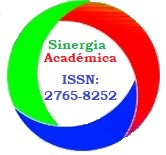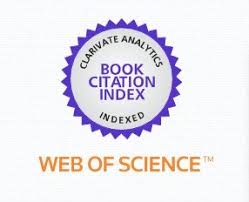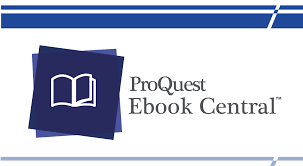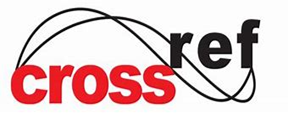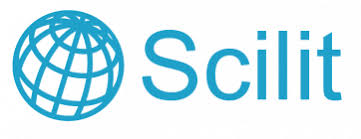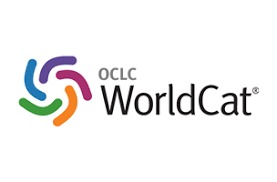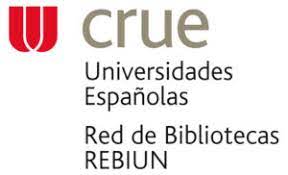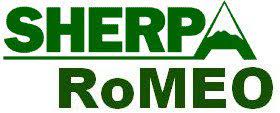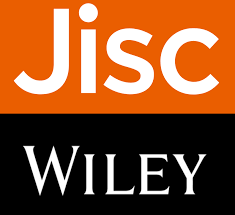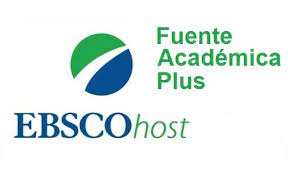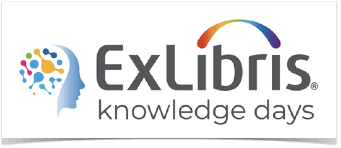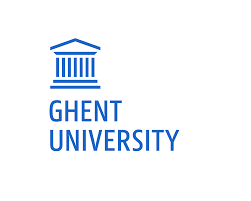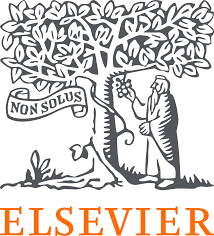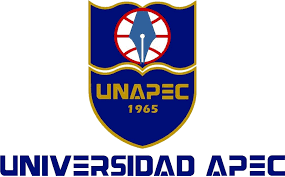Pedagogical research in higher education: rationale, methods and applications.
ISBN: 978-0-3110-0071-5; BIC: GPS
DOI:
https://doi.org/10.51736/eta.vi.99Keywords:
Pedagogical research, higher education, methodsAbstract
The book Pedagogical Research in Higher Education: Rationale, Methods and Applications arises from the need to address the growing complexity of research in higher education and its impact on teaching practice, especially in a context of rapid technological evolution. The main objective is to provide a comprehensive overview of the theoretical foundations, methods and applications of pedagogical research, with a focus on improving educational quality and teacher professional development. The book employs a literature review method to explore and synthesize the main theoretical and methodological currents in educational research, including the use of technologies and digital tools in data collection and analysis. Theoretical approaches, research designs, and data collection and analysis techniques are examined, as well as contemporary challenges and practical applications.
Downloads
References
Abero, L., Berardi, L., Capocasale, A., García Montejo, S., & Rojas, R. (2015). Investigación educativa: abriendo puertas al conocimiento. Clacso.
Acuña-Zúñiga, C. C., Aguayo-Cisternas, G. R., Troncoso-Ávila, A., Torres-Rivera, L. B., & Tapia-Henríquez, M. C. (2024). Investigación educativa en el profesorado. Percepción de docentes en formación de postgrado. Revista de estudios y experiencias en educación, 23(52), 248-265.
Altbach, P. G., & de Wit, H. (2020). The importance of international academic cooperation in a post-pandemic world. International Higher Education, (102), 7-8.
Altbach, P. G., & Reisberg, L. (2022). Global Trends in Higher Education: Tracking an Academic Revolution. Unesco.
Ander, E. (2005). Diccionario de las Ciencias de la Educación. Humanitas.
Baert, S., Cockx, B., & Vereeck, L. (2022). The relevance of university curricula for the labor market: An analysis of the evolving demands and competencies. Higher Education Quarterly, 76(2), 285-302.
Baker, D. J., & Velez, M. D. (2022). Equity and inclusion in Higher Education: Policies and practices for improving access and success. Journal of Diversity in Higher Education, 15(1), 45-63.
Balladares-Burgosa, J. (2018). La investigación educativa en el profesorado universitario: hacia una investigación basada en el diseño instruccional. Revista Andina de Educación, 1(1), 30-34.
Balladares-Burgosa, J. (2018). La investigación educativa en el profesorado universitario: hacia una investigación basada en el diseño instruccional. Revista Andina de Educación, 1(1), 30-34.
Bautista, J. M. S. (2024). Las innovaciones educativas y su impacto en la mejora de las prácticas docentes. Revista Guatemalteca de Educación Superior, 7(2), 75-91.
Benavot, A. (2002). Un análisis crítico de la investigación comparativa en educación. Perspectivas, 32(1), 53-81.
Bernal, A., & Cárdenas, A. R. (2017). Evaluación del potencial emprendedor en escolares: Una investigación longitudinal. Educación XX1: revista de la Facultad de Educación.
Bray, M., Adamson, B., & Mason, M. (eds.). (2014). Comparative education research: Approaches and methods. Springer.
Brinkmann, M. (2016). Phenomenological research in education. A systematic overview of German phenomenological pedagogy from the beginnings up to today. Encyclopaideia, 20(45).
Brown, J., Richards, A., & Shah, N. (2021). COVID-19 and Higher Education: Lessons Learned in Crisis Response. Higher Education Review, 55(1), 33-50.
Bryman, A. (2016). Social research methods (5th ed.). Oxford University Press.
Caldeiro, M. C., Sarceda, M. D. C., & García-Ruiz, R. (2018). Innovación e investigación en educación superior: Desarrollo de competencias digitales y aplicación de metodologías activas en futuros docentes de FP. En: El compromiso académico y social a través de la investigación e innovación educativas en la Enseñanza Superior (pp. 1212-1221). Octaedro.
Calvo, G., Abello, M. C., & Báez, C. P. (2008). ¿Investigación educativa o investigación pedagógica? El caso de la investigación en el Distrito Capital. Magis: Revista Internacional de Investigación en Educación, 1(1), 163-174.
Campbell, D. T., & Stanley, J. C. (1963). Experimental and quasi-experimental designs for research. Houghton Mifflin Company.
Campos, G., & Martínez, N. E. L. (2012). La observación, un método para el estudio de la realidad. Xihmai, 7(13), 45-60.
Caruana, E. J., Roman, M., Hernández-Sánchez, J., & Solli, P. (2015). Longitudinal studies. Journal of thoracic disease, 7(11), E537.
Clark, R. S., & Plano, V. L. (2022). The use of mixed methods to advance positive psychology: a methodological review. International Journal of Wellbeing, 12(3), 35-55. https://doi.org/10.5502/ijw.v12i3.2017
Cohen, L., Manion, L., & Morrison, K. (2017). Research methods in education (8th ed.). Routledge.
Cohen, L., Manion, L., & Morrison, K. (2017). Action research. En Research methods in education (pp. 440-456). Routledge.
Cook, T. D. & Reichardt, C. S. (1986). Métodos cualitativos y cuantitativos en investigación educativa. Edit. Morata.
Corona, L., Fonseca, M., & Corona, M. (2017). Algunas sugerencias prácticas para la formulación del problema científico y los objetivos en el proyecto de investigación. Medisur, 15(4), 576-582.
Corzo, J. Q. (2015). Investigación pedagógica: el sello distintivo de todo educador. Universidad de Caldas.
Costa, E. D., Fernández-Cano, A., Faouzi, T., & Henríquez, C. F. (2015). Validación del constructo subyacente en una escala de evaluación del impacto de la investigación educativa sobre la práctica docente mediante análisis factorial confirmatorio. Revista de Investigación Educativa, 33(1), 47-63.
Creswell, J. W. (2014). Research design: Qualitative, quantitative, and mixed methods approaches (4th ed.). Sage Publications.
Creswell, J. W., & Plano, V. L. (2018). Designing and conducting mixed methods research (3rd ed.). SAGE Publications.
Cruz, M., Escalona, M. & Téllez, L. (2014). Calidad y cantidad en las investigaciones educacionales. Algunas reflexiones sobre su integración. Revista Didasc@lia: Didáctica y Educación, 4(2), 203- 222. http://revistas.ojs.es/index.php/didascalia/article/view/2013/1610
de Franco, M. F., & Solórzano, J. L. V. (2020). Paradigmas, enfoques y métodos de investigación: análisis teórico. Mundo recursivo, 3(1), 1-24.
de la Fuente, D. H. (2023). Educational reforms for a crisis. On the education of character in Plato and Aristotle. Revista Española de Pedagogía, 81(284), 17.
Denzin, N. K., & Lincoln, Y. S. (Eds.). (2011). The SAGE handbook of qualitative research (4th ed.). Sage Publications.
Domínguez, H. G., Véliz, H. P., Trabada, A. V., & Esteban, J. M. V. (2022). Entendiendo la brecha pedagógica entre la investigación educativa y la realidad del profesorado: un análisis de las barreras y propuestas. Educación XX1: Revista de la Facultad de Educación, 25(2), 173-200.
dos Santos Dangió, M. C., & Martins, L. M. (2018). A alfabetização sob o enfoque histórico-crítico: contribuições didáticas. Autores Associados.
Diller, J. W. (2021). BF Skinner and behaviorism. En Encyclopedia of Evolutionary Psychological Science (pp. 495-500). Springer International Publishing.
Eisenberg, D., Golberstein, E., & Hunt, J. B. (2021). Mental health and academic success in college. B.E. Journal of Economic Analysis & Policy, 21(1), 123-150.
Espinoza, E. E. (2018). El problema de investigación. Conrado, 14(64), 22-32.
Espinoza, E. E. (2020). Reflexiones sobre las estrategias de investigación acción participativa. Conrado, 16(76), 342-349.
Evans, C., Kandiko, C., Forsythe, A., & Edwards, C. (2021). What constitutes high quality higher education pedagogical research? Assessment & Evaluation in Higher Education, 46(4), 525-546.
Fernández, J. V. M. (1982). Fundamentos y alcance de la interdisciplinaridad en la investigación pedagógica. Revista Española de Pedagogía, 47-65.
Fernández, J. V. M. (2023). Fundamentos y alcance de la interdisciplinaridad en la investigación pedagógica. Revista Española de Pedagogía, 40(155), 5.
Flick, U. (2018). Designing Qualitative Research. SAGE.
Freeman, S., Eddy, S. L., McDonough, M., Smith, M. K., Okoroafor, N., & Jordt, H. (2014). Active learning increases student performance in science, engineering, and mathematics. Proceedings of the National Academy of Sciences, 111(23), 8410-8415.
Gagñay, L. K. I., Chicaiza, S. L. T., & Aguirre, J. L. (2020). Ética en la investigación científica. Revista Imaginario Social, 3(1).
Galarza, C. A. R. (2021). Diseños de investigación experimental. CienciAmérica: Revista de divulgación científica de la Universidad Tecnológica Indoamérica, 10(1), 1-7.
Galarza, M. E. B., Santacruz, S. E. T., & Mejía, Y. A. C. (2017). La ética en la investigación educativa: ¿condición indispensable? Revista Ecos de la Academia, 3(05), 80-91.
Galindo-Domínguez, H., Perines, H., Verde, A., & Valero, J. M. (2022). Entendiendo la brecha pedagógica entre la investigación educativa y la realidad del profesorado: un análisis de las barreras y propuestas.
Gall, M. D., Gall, J. P., & Borg, W. R. (2007). Educational research: An introduction (8th ed.). Pearson Education.
García, J. G. (2020). El constructivismo en la educación y el aporte de la teoría sociocultural de Vygotsky para comprender la construcción del conocimiento en el ser humano. Dilemas contemporáneos: Educación, política y valores.
Garrison, D R & Anderson, T 2003. E-learning in the 21st century: a framework for research and practice. RoutledgeFalmer
Gee, J. P. (2014). An introduction to discourse analysis: Theory and method (4th ed.). Routledge.
Gil-Galván, R. (2018). El uso del aprendizaje basado en problemas en la enseñanza universitaria. Análisis de las competencias adquiridas y su impacto. Revista mexicana de investigación educativa, 23(76), 73-93.
Gómez, J., Martínez, F., & Delgado, M. (2023). Bridging the Gap: Enhancing the Communication Between Researchers and Practitioners. Journal of Educational Research, 45(2), 123-138.
González, A., García, E., & Fernández, P. (2020). Legislative Impacts on Higher Education: A Review of Recent Reforms. Higher Education Policy Review, 32(4), 456-470.
González, J. D. H. (2011). La formación de docentes investigadores: el estatuto científico de la investigación pedagógica. Magis: Revista Internacional de Investigación en Educación, 3(5), 53-62.
González, A., & Perera, P. (2021). Panglotia, pampedia y pansofía: el realismo pedagógico en Comenio. Pedagogía y saberes, (54), 23-36.
González, O. H., Antonio, A., Fernández, D. G., & Sáez, M. C. (2020). Consideraciones esenciales sobre el tema ético en la investigación educativa. UCMaule, (58), 141-164.
González, W. O. L. (2013). El estudio de casos: una vertiente para la investigación educativa. Educere, 17(56), 139-144.
González-Tejero, J. M., & Pons, R. M. (2011). El constructivismo hoy: enfoques constructivistas en educación. Revista electrónica de investigación educativa, 13(1), 1-27.
Gorina, A. & Alonso, I. (2016). La competencia informacional: reto en la formación de investigadores de las Ciencias Sociales. Electrónica Formación y Calidad Educativa (REFCalE), 4(3), 55-70
Gorina, A., & Alonso, I. (2017). Perfeccionando el procesamiento de la información en investigaciones pedagógicas desde una relación metodológica cualitativa-cuantitativa. Encuentros, 15(2), 189-206.
Gundermann, H. (2001). El método de los estudios de caso. Observar, escuchar y comprender. Sobre la tradición cualitativa en la investigación social.
Hargreaves, A., Fullan, M., & Lieberman, A. (2021). The Changing Nature of Educational Research. Educational Change and Reform, 38(1), 67-81.
Harvey, L., Williams, J., & Green, R. (2019). Quality assurance and improvement in higher education: A review of recent developments. Assessment & Evaluation in Higher Education, 44(5), 723-735.
Hattie, J. (2009). Visible learning: A synthesis of over 800 meta-analyses relating to achievement. Routledge.
Jones, S., & McEwen, K. (2021). Digital Pedagogy in Higher Education: A New Normal. Journal of Educational Technology, 40(3), 101-115.
Jurado, M., Ortega, A., & López, V. (2023). Training Future Researchers: Aligning Methodological Training with Practical Needs. Educational Research Review, 48(1), 201-215.
Kvale, S., & Brinkmann, S. (2009). InterViews: Learning the craft of qualitative research interviewing (2nd ed.). Sage Publications.
Lesnieski, M. S., Trevisol, M. G., & Silva, G. J. D. (2024). Historical-Critical Methodology in Educational Research: 1st approaches. Educação & Realidade, 49, e130601.
Laurillard, D. (2013). Rethinking university teaching: A conversational framework for the effective use of learning technologies. Routledge.
Leedy, P. D., Ormrod, J. E., & Johnson, L. R. (2014). Practical research: Planning and design. Pearson Education.
Lima, A. D. V. (2012). La investigación pedagógica. Otra mirada. Pueblo e Educación.
Lincoln, Y. S., & Guba, E. G. (1985). Naturalistic inquiry. Sage Publications.
Long, H. (2015). Validity in mixed methods research in education: the application of Habermas' critical theory. International Journal of Research & Method in Education. 40(2), 201-213, doi: 10.1080/1743727X.2015.1088518
López, M., Vargas, H., & Chen, Y. (2021). Global Challenges and Higher Education's Role in Problem Solving. International Journal of Education and Development, 43(4), 214-230.
Lopez, S., Rivera, C., & Pérez, M. (2022). Access to Research: Challenges and Solutions in Educational Contexts. Journal of Access and Dissemination, 39(3), 78-92.
Mamani, D. V. P. (2021). La pedagogía crítica y las ciencias sociales. Revista Latinoamericana Ogmios, 1(2), 183-188.
Marcuse, H. (1964). One-Dimensional Man: Studies in the Ideology of Advanced Industrial Society. Beacon Press.
Meliá, J. M. J., González-Such, J., & García-Bellido, M. R. (2012). La Investigación Evaluativa y las Tecnologías de la Información y la Comunicación (TIC). Revista española de pedagogía, 93-110.
Merriam, S. B. (2009). Qualitative research: A guide to design and implementation. Jossey-Bass.
Mertens, D. M. (2023). Mixed methods research: Research methods. Bloomsbury Publishing.
Miranda, S., & Ortiz, J. A. (2020). Los paradigmas de la investigación: un acercamiento teórico para reflexionar desde el campo de la investigación educativa. RIDE. Revista Iberoamericana para la Investigación y el Desarrollo Educativo, 11(21).
Montejo, M. N. (2017). La investigación pedagógica. Otra Mirada por Alberto D. Valle Lima. Transformación, 13(3), 442-444.
Mora, R., Fernández, J., & López, M. (2022). Impact of publication metrics on research priorities in education. Education Policy Analysis Archives, 30(6), 345-359.
Muñoz, M., & Garay, F. (2015). La investigación como forma de desarrollo profesional docente: Retos y perspectivas. Estudios pedagógicos, 41(2), 389-399.
Neale, B. (2020). Qualitative longitudinal research: Research methods. Bloomsbury Publishing.
Nelson, J., Green, L., & Harris, R. (2022). Understanding educators' perceptions of research: a qualitative study. Teaching and Teacher Education, 60, 88-102.
Ord, J., & Leather, M. (2017). Experiential education: The importance of John Dewey 1. In Rethinking Outdoor, Experiential and Informal Education (pp. 40-55). Routledge.
Patton, M. Q. (2015). Utilization-focused evaluation. SAGE Publications.
Patton, M. Q. (2022). Impact-driven qualitative research and evaluation. The SAGE handbook of qualitative research design, 2, 1165-1180.
Pérez, A., Sánchez, E., & Ortega, M. (2023). Adapting research to classroom realities: practical considerations. International Journal of Educational Research, 52(2), 134-149.
Pérez Vargas, J. J., Nieto Bravo, J. A., & Santamaría Rodríguez, J. E. (2019). La hermenéutica y la fenomenología en la investigación en ciencias humanas y sociales. Civilizar Ciencias sociales y humanas, 19(37), 21-30.
Perines, H. (2018). ¿Por qué la investigación educativa no impacta en la práctica docente? Estudios sobre educación, 34, 9-27.
Perines, H., & Vega-López, R. (2024). Los futuros profesores y su vinculación con la investigación educativa: de la teoría a la práctica. Cuadernos de Investigación Educativa, 15(2). https://doi.org/10.18861/cied.2024.15.2.3723
Perines, H. (2016). Las difíciles relaciones entre la investigación educativa y la práctica docente (Doctoral dissertation, Universidad Autónoma de Madrid).
Perines, H., & Murillo, F. J. (2017). ¿Cómo mejorar la investigación educativa? Sugerencias de los docentes. Revista de la educación superior, 46(181), 89-104.
Peters, J. (2023). Policy making and educational research: a synergistic relationship. Policy Studies Review, 41(1), 87-104.
Ramírez, E. R. S., & Hervis, E. E. (2019). El método estudio de caso y su significado en la investigación educativa. En Procesos formativos en la investigación educativa: diálogos, reflexiones, convergencias y divergencias (pp. 203-222). Red de Investigadores Educativos Chihuahua AC.
Ramírez, M. C., Reyes, M. E., & Lazo, L. T. (2014). Cualidad y cantidad en las investigaciones educacionales: Algunas reflexiones sobre su integración. Didasc@lia: Didáctica y Educación, 5(2), 203-222.
Reeves, S., Peller, J., Goldman, J., & Kitto, S. (2013). Ethnography in qualitative educational research: AMEE Guide No. 80. Medical teacher, 35(8), 1365-1379.
Reeve, J., Cheon, S. H., Yu, T., & Jang, H. (2021). Enhancing student engagement in learning: The classroom need-supportive teaching model. Journal of Educational Psychology, 113(1), 149–169.
Relph, E. C. (2014). Phenomenology. In Themes in Geographic Thought (Routledge Revivals). Routledge.
Reyes-Zambrano, J. L., & Vegas-Meléndez, H. J. (2024). Impacto de la pandemia de COVID-19 en la educación superior: análisis de la eficacia de la educación híbrida. Revisión sistemática. Revista Científica Multidisciplinaria Arbitrada Yachasun, 8(15), 57-98.
Rodríguez, G., Gil, J., & García, E. (1999). Metodología de la investigación cualitativa. Aljibe
Ruano, B. T. (2013). Implicaciones pedagógicas del pragmatismo filosófico americano: una reconsideración de las aportaciones educativas de Charles S. Peirce, William James y John Dewey (Doctoral dissertation, Universidad Autónoma de Madrid).
Ruiz, G., Mendoza, L., & Gómez, J. (2022). Challenges in educational research communication: bridging the gap with clear language. Journal of Educational Communication, 40(4), 212-226.
Salmi, J. (2020). The Challenge of Establishing World-Class Universities. World Bank Publications.
Sánchez, R., González, M., & García, A. (2023). Collaboration Between Researchers and Educators: Enhancing Research Relevance and Application. Research in Education, 50(2), 177-191.
Santamaría, J. S. (2013). Paradigmas de investigación educativa: de las leyes subyacentes a la modernidad reflexiva. Entelequia: revista interdisciplinar, 16, 91-102.
Schwandt, T. A. (2000). Three epistemological stances for qualitative inquiry: Interpretivism, hermeneutics, and social constructionism. In N. K. Denzin & Y. S. Lincoln (Eds.), Handbook of qualitative research (pp. 189-214). Sage Publications.
Senge, P. M. (1997). The fifth discipline. Measuring business excellence, 1(3), 46-51.
Shabani Varaki, B., Floden, R. E., & Javidi Kalatehjafarabadi, T. (2015). Para-quantitative methodology: Reclaiming experimentalism in educational research. Open Review of Educational Research, 2(1), 26-41.
Sharma, P., & Padmanabhan, V. (2023). Addressing gender gaps in stem through university programs. Journal of Gender Studies, 28(3), 77-92.
Schulz, P. C. (2005). La ética en ciencia. Revista Iberoamericana de polímeros, 6(2), 120-156.
Siemens, G. (2013). Learning analytics: The emergence of a discipline. American Behavioral Scientist, 57(10), 1380-1400.
Silverman, D. (2013). Doing qualitative research (4th ed.). Sage Publications.
Singer, E. (2022). Piaget and Vygotsky: Powerful inspirators for today’s students in early education and developmental psychology. In Piaget and Vygotsky in XXI century: Discourse in early childhood education (pp. 129-143). Springer International Publishing.
Smith, J. A., Flowers, P., & Larkin, M. (2009). Interpretative phenomenological analysis: Theory, method and research. Sage Publications.
Smith, K., Harris, D., & Nolan, P. (2023). Inclusive education policies and their impact on students with disabilities. Journal of Higher Education Policy and Management, 45(2), 115-130.
Spradley, J. P. (2016). Participant observation. Waveland Press.
Stake, R. E. (1995). The art of case study research. Sage Publications.
Stevenson, H. (2012). The Critical Pedagogy Reader. Routledge.
Suárez, S. K. D., Montoya, C. L. S., Liscano, A. E. G., & Hinojosa, L. A. C. (2021). Investigación educativa en la educación superior y sus beneficios. Recimundo, 5(3), 137-148.
Sutton, P., Jones, A., & White, K. (2023). The language of research: overcoming barriers to understanding in education. Educational Language Studies, 47(1), 65-80.
Teddlie, C. & Tashakkori, A. (2009). Foundations of mixed methods research: Integrating quantitative and qualitative approaches in the social and behavioral sciences. Thousand Oaks, CA: Sage.
Thomas, M. A., & Schweisfurth, M. (2021). Constructivism and Learner-Centeredness in Comparative and International Education. The Bloomsbury handbook of theory in comparative and international education.
Thyer, B. A. (2012). Quasi-experimental research designs. Oxford University Press.
Tomaszewski, L. E., Zarestky, J., & Gonzalez, E. (2020). Planning qualitative research: Design and decision making for new researchers. International Journal of Qualitative Methods, 19, 1609406920967174.
Toro, C. M. O. (2021). El paradigma sociocrítico y la práctica evaluativa en educación. EDUCA, (2).
Torrecilla, F. J. M., & Javier, F. (2011). Investigación acción. Métodos de investigación en educación especial. 3ª Educación Especial. Curso, 14-16.
Torres, P.A. (2016). Acerca de los enfoques cuantitativo y cualitativo en la investigación educativa cubana actual. Revista Atenas, 2(34), 1-15.
UNESCO. (2022). Global Education Monitoring Report 2022: Higher Education. Unesco.
Vázquez, I., López, F., & Ortega, J. (2021). Evaluative criteria in academic publishing: impact on research quality and applicability. Journal of Academic Publishing, 33(5), 301-316.
Villegas, G. M. I. (2021). La investigación pedagógica formativa como estrategia pedagógica para desarrollar el potencial de aprendizaje y pensamiento científico. Magna Scientia Uceva, 1(1), 58-67.
Whitworth, B., & Chiu, M. (2021). The Disconnect Between Research and Practice: Analyzing Current Trends and Solutions. Journal of Pedagogical Research, 54(3), 89-104.
Yin, R. (1984). Case study research: design and methods, applied social research methods series. Sage
Yin, R. K. (2018). Case study research and applications: Design and methods (6th ed.). Sage Publications.
Zapata, F., & Rondán, V. (2016). La investigación-acción participativa. Instituto de Montaña.
Zhao, Y., Liang, L., & Wu, H. (2023). Educational technology and digital learning in higher education: Trends and impacts. Journal of Educational Technology Development and Exchange, 16(1), 1-17.
Zorrilla, M. (2010). Investigación educativa, políticas públicas y práctica docente. Triángulo de geometría desconocida. REICE. Revista Iberoamericana sobre calidad, eficacia y cambio en educación, 8(2), 74-92.
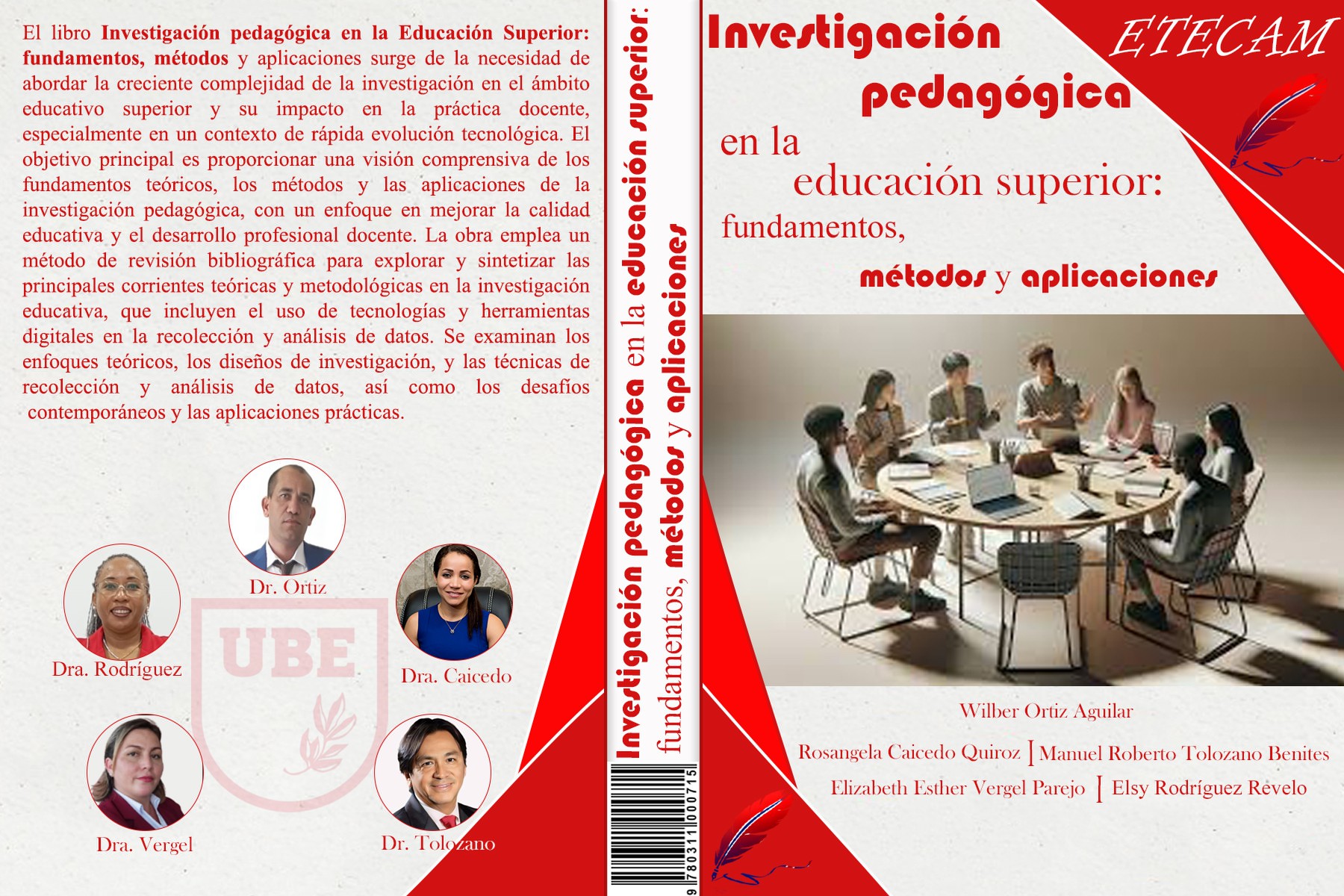
Downloads
Published
How to Cite
Issue
Section
License
Copyright (c) 2022 Wilber Ortiz Aguilar, Rosangela Caicedo Quiroz, Manuel Roberto Tolozano Benites, Elizabeth Esther Vergel Parejo, Elsy Rodríguez Revelo

This work is licensed under a Creative Commons Attribution-NonCommercial-ShareAlike 3.0 Unported License.






